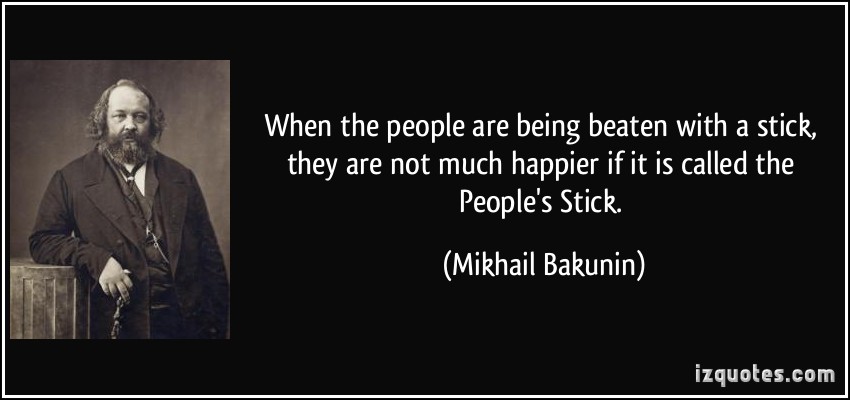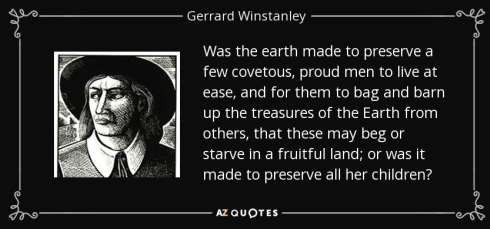The right-wingers out there are still blaming any violence from their side on “Antifa” (or anarchists, liberals, progressives, Democrats, etc.). Why is that? Well, it’s because they are liars, and conspiracy theories concealing right-wing violence are good for the white nationalist agenda so prevalent among Republicans today.
Even putting white nationalism aside for a second, blaming all violence on anarchists (or, in some cases, communists) is an old trope, and, even among those who accept that right-wing violence exists, even they will attempt to “both sides” it, severely downplaying the more common right-wing, racist violence while grossly exaggerating the other (or even claiming relatively apolitical violence is left-wing violence, or a false flag, or what have you).
The more confused people are about violence, the more white nationalists can conceal the violence in their own movement, and hide it behind “patriotism” or irrational fears (such as “the great replacement theory,” where white people are supposedly being forcibly replaced by immigrants and other minorities, and it’s all being implemented by George Soros, which is a thinly-veiled codeword for “Jews”).
Political Violence Does Exist, and Right-wingers Capitalize on the Fear
Okay, so what about political violence makes it easy for skilled right-wing propagandists to advance their causes? For starters, we know that political violence does happen, so that general claim is by no means a conspiracy theory in itself. Every powerful lie will; at least have a few elements of truth to it, right?
It’s not like there is never evidence of momentary or sustained violence caused by, or in reaction to, systems of authority. We know there is. We can read about it in the news every day.
However, what most people don’t read about is how this violence is, in many ways, emanating from a statist reaction to any opposition to capitalism. Because, actually, some violence in North America could reasonably be seen as almost synonymous with market capitalism and white nationalism.
As the Spanish individualist anarchist Miguel Giménez Igualada explained regarding capitalism being linked to the government: “[C]apitalism is an effect of government; the disappearance of government means capitalism falls from its pedestal vertiginously…That which we call capitalism is not something else but a product of the State, within which the only thing that is being pushed forward is profit, good or badly acquired. And so to fight against capitalism [alone] is a pointless task, since be it State capitalism or Enterprise capitalism, as long as Government exists, exploiting capital will exist. The fight, but of consciousness, is against the State.”
So the right-wing reactionaries in the system are, in different ways, cracking down on those they consider rebellious against state-capitalism, and chiefly employing racism and fear of “demographic replacement” as a divide-and-conquer tactic to keep the masses in thrall of the corporate state. And, in the United States, the state happens to have a very racist history, which obviously enjoyed a resurgence during Trump’s term as President.
The Republican Party has now been almost totally taken over by Trumpism, so the overlapping interests of mega-corporations and white nationalism are getting harder and harder to conceal. Sure, maybe they are not absolutely, 100% inherently linked, but they do seem to go hand-in-hand, and we do see how bold these Republicans are when it comes to overtly tying their capitalist worldview together with overt racism. It might be said that their dog whistles are increasingly replaced by bullhorns.
On that note, it’s not like one could reasonably say “No noteworthy right-wing political violence has taken place in North America for decades.” It is increasingly the norm, and these right-wing extremists keep calling for more of it (while claiming they are not, of course, to help avoid legal accountability or other punishments).
Aside from the car attack in Charlottesville, which seemed to almost usher in the era of Trumpism, we saw some pretty obvious political violence on January 6, 2021.
Of course, plenty of right-wing propagandists out there will claim that the protests in 2020 were nothing but riots, and tend to exaggerate that particular extremist political violence (though they will always downplay the violence of police who were present, or all the right-wing rioters and, in some cases, agent provocateurs, who showed up at those protest events, often no doubt hoping to trigger a race war to implement their reactionary, white nationalist ideals).
It does not matter to them that I attended a BLM protest locally and there was not a single moment of violence or even property destruction. That fact is not generous to them, so it can be casually ignored.
Now, as messy and deadly as political violence can be, one can easily discover that certain interests are actually profiting off of this dysfunction. If nothing else, we know right-wing leaders and right-wing media are making money, propagandizing the masses to fall in line with their typically twisted perspectives on things.
The Antifa Boogeyman
Rather than focusing on all the white nationalist violence happening in this country (which has quite obviously been increasing in the past decade or so), they want us to believe that every shot is being called by “Antifa” (or a number of unnamed anarchist terrorist cells). They have said so about January 6, with the insane theory that the event — clearly intended to attack the system and impose Trump as a dictator — was these radical anarchists coordinating with the FBI.
And to do what? To have Joe Biden become President after he legitimately won the election? In what way is that any sort of radical idea? The whole conspiracy theory functions as a convoluted joke, and it’s difficult not to laugh at it, even when knowing how degrading and destructive it has been to logic itself.
However, let me be clear on something: No neo-liberal, Wall Street-serving President is acting with the full support or encouragement of far-leftist groups. If they are, then they are likely dupes, undermining their own interests. And frankly, there are no “anarchist governments” or “anarchist jurisdictions” as Trump and AG Bill Barr laughably claimed. That was them inventing a term that has no actual legal basis, but was “elevated” into existence at the whim of the wannabe dictator, Donald Trump, and his (at the time) pathetically loyal lackey, Bill Barr.
Similarly, white nationalist loon Wendy Rogers, an actual elected official in Arizona, recently claimed that the 2022 mass shooting in Buffalo, New York was orchestrated by the FBI (specifically making the ludicrous post: “Fed boy summer has started in Buffalo…”) Not only was the conspiracy theory grossly offensive and rooted in white nationalist conspiracy theory, but it should also be kept in mind that this is a well-paid right-wing narrative. Again, these people are making money by presenting these ideas. They are paid propagandists.
Tucker Carlson over at FOX “News” has repeatedly said such things regarding January 6th, and he also has advanced the same “great replacement theory” that inspired the Buffalo shooter. Now, obviously, people like Tucker Carlson and Wendy Rogers are being paid to advance such conspiracy theories by some people with big money, and to (they hope) bring us closer to a white supremacist government.
And they are cynically using stereotypes about anarchists to claim anarchists and “Antifa” are somehow directly responsible for any bit of terrorist violence happening from right-wing ideology (hell, in some cases, even for apolitical violence, as lunatics like Alex Jones even claimed a school shooting was a “false flag!”). The narrative, of course, is that no right-wingers are actually violent, even when they engage in violent rhetoric on a near-constant basis and have violent beliefs involving preventing “demographic shifts” in the population (very thinly veiled language for rationalizing racial discrimination and related violence).
These right-wing ideologues are also exploiting the fact that, like nearly every other political ideology (aside from advocates of pacifism), anarchists have used assassinations as part of their perceived struggle, at various points in history. However, perhaps ironically, murder by anarchists happens way less nowadays, despite right-wingers suggesting there has been a huge uptick in specifically anarchist political violence — which again, is in fact often actually right-wing terrorism, or even relatively apolitical violence such as school shootings.
But people like Tucker Carlson and Wendy Rogers know full well that anarchists, and leftists, are a convenient scapegoat, as they have never been the most popular group in a largely conservative society like the United States. They can conveniently claim any number of things against anarchists, liberals, Democrats, Marxists, communists, you name it, and their audiences will simply eat it up, as they lack critical thinking skills and (typically) don’t seek out different sources of information.
Again, all of this is profitable for these right-wing interests. They are cashing in on it, and it’s surprising that the United States has not yet totally caved to these perverted interests.
However, they are working on it, overtime.
We can fully expect that these efforts will continue having some success, as they will begin more particularly targeting police officers, military members, and government officials who already have their ear, with their propaganda. Expect an increase in things like loyalty oaths, as well as even more conspiracy theories related to groups these right-wing extremists don’t happen to like. We can fairly predict these extremists will engage in more shootings, discrimination, bombing, and car-ramming attacks against not only relatively random people (be they “liberal” protesters or individuals in minority groups), but increasingly against major targets.
These neo-fascists will have more cases of violence, no doubt, but the real question is how much their narrative can dominate the mass media and spread to infect more already-damaged minds.
Really, one of the few things we have going for us is that, yes, there are “demographic shifts” happening that actually do threaten these narratives, to some degree. As the population becomes more diverse, it likely will adhere strictly to the white nationalist ideology.
This is partly why people like Tucker Carlson advance the “great replacement theory” to begin with. They know they can tap into these racist fears among their target audience., and that there is money to be gained by dividing the population. And, because the system has already been racist in many respects, it makes it easier to cash in, and the white nationalists can already enjoy some popular support.
And we know that white supremacy has been a reality here. In addition to hundreds of years of slavery, segregation, and countless crimes, there are endless signs. Example: To my knowledge, no politician or police officer has ever encouraged racially profiling white people for violence or other crimes, at least not in the United States. For another example, President Trump never claimed Joe Biden was some wicked foreigner, even though he specifically ran against Biden and therefore theoretically had more reason to spread sinister lies (and that lie against Obama truly was sinister, and a clear sign of what was to come under Trumpism).
Dishonesty lies at the very core of practically everything such people say, which is actually a key component of their illegitimacy. It’s not just that they encourage violence against minorities (though they do), it’s also simply that they are liars. Even that should matter, but the laws are often unwilling to touch these liars, provided they have money and powerful connections.
And so the lies spread, and the loyal opposition among the Democrats does little to combat them. These right-wing lies permeate the internet, and the virus spreads.
I recently responded to someone on Youtube who claimed “There are videos on YouTube right now where there are democrats applauding dwindling numbers of White Americans. I’m not making that up, it’s a fact.”
I responded: “‘It’s a fact that you provide no specific source for,’ but then went on to an equally important point: “In the real world, plenty of leftists/liberals/whatever have been honest enough to note that some minorities can end up voting Republican. So there is no guarantee whatsoever that any demographic shift will inherently benefit Democrats, but Republicans don’t want those kinds of people here, and talk of ‘replacement’ is how they rationalize and justify their racist ideology. Cenk [Uygur of The Young Turks] has made that observation repeatedly.”
However, no matter how much I can repeat myself, people are unlikely to hear my competing narrative as much as what’s available in right-wing media. People like myself don’t have millions or billions of dollars to buy ad time. And, hell, even if I did, there is no guarantee whatsoever that right-leaning corporate media would run my ads anyway. The system is rigged, and it’s certainly not rigged in favor of people who challenge white nationalist talking points (lies) and related violence.
![Anarcho-communism?! What, are you crazy?! [Or: Are there advantages to direct democratic methods of organizing?]](https://anarchishblog.files.wordpress.com/2022/06/anti-capitalism_colore28094_restored.png?w=1108&h=737&crop=1)





